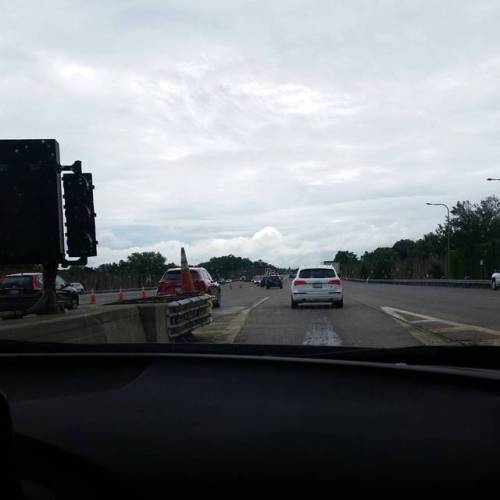via
http://ift.tt/2twxkFu:
beachdeath:
i worry that the way we talk about stonewall decontextualizes the event itself - that saying “the first pride was a riot” implicitly disconnects the raid on stonewall from the fact that similar raids on gay bars had been happening for decades prior, and that lgbt activists had been actively resisting police violence all the while, at the risk of their lives and livelihoods and reputations.
police oppression of gay people did not begin in 1969, and gay resistance to police oppression did not begin with the stonewall riots. that’s not to minimize the extreme importance of stonewall, of course, or the indelible contributions to our history and safety that were made by activists like sylvia rivera and marsha p. johnson and miss major griffin-gracy and stormé delarverie. but they were standing on the shoulders of decades and decades of leaders and activists who had come before them, who had fought and died and endured total brutality at the hands of homophobic police.
gay bars, as much as they were allowed to exist in the decades prior to stonewall, were persistently targeted by undercover police officers and by violent raids. in los angeles, from the mid-1940s onward, the LAPD employed out-of-work actors to pretend to be gay and infiltrate these spaces, solicit men for sex, and then book them on charges of public indecency.
the police department would give these officers quotas to meet on a weekly basis - round up and jail a certain number of homosexuals, or else. frequently, they would arrest men simply for appearing gay, or for having the bad luck to walk through a park or use a bathroom known as a gay cruising spot. this policy was a cash cow like none other, because these men would always plead guilty, would always agree to pay hefty fines in order to settle the matter and keep it quiet and avoid having their reputations ruined.
and the police would stop at nothing to bully people into pleading guilty. it was commonplace for police to handcuff their charges, shove them into the backseat of their cruisers, and then drive in circles for hours, looping to the outskirts and back, intimidating and harassing them all the way. by the time they finally pulled up at the police station and booked their charges, they would be so shaken by the abuse they’d just experienced that they’d plead guilty without a second thought, cough up whatever money they could spare in order to go free.
in less extreme cases, police officers would simply verbally abuse the men they’d arrested, but just as often, the officers would physically beat, sexually abuse, or rape these men. oftentimes, the sexual abuse and rape would be part of the arrest itself - an officer would solicit sex from a man, the man would turn him down, and the officer would force him into sex anyway and then report that the man had initiated it.
like, this was daily fucking life for lgbt people for decades before stonewall. and fledgling gay activists fought it with everything they had, early. in 1952, the los angeles mattachine society established the Citizens Committee to Outlaw Police Entrapment after one of their founders, dale jennings, was stalked home by an officer, sexually assaulted in his own bedroom, and then booked for public indecency. rather than simply plead guilty, jennings chose to contest the charges and take them to trial - a totally unprecedented move - with the aid of socialist lawyer george shibley. and the jury voted 11-1 for acquittal, and he walked free. in 1952. seventeen years before stonewall.
but this shit kept happening, everywhere, for decades - new york city didn’t end its policy of police entrapment of lgbt citizens until the mid-1970s. and all the while, there was organized resistance. all the while, organizations like the mattachine society and street transvestite action revolutionaries fought back.
it’s super, super convenient for heterosexual society to claim that there was just one inciting incident, and one moment of spontaneous, courageous resistance, that sparked the gay rights movement as we know it today. but we can’t fall into that trap. there were decades of brutal, violent police oppression, and there were decades of structured, well-organized resistance to that oppression.
for a long time, the gay struggle against police violence was the only fight there was. in the late 1940s, at the dawn of formal organization, nobody was agitating for their right to live openly as gay or avoid employment discrimination or get married or adopt children. the movement emerged in opposition to the systematized detainment and torture and rape of gay people by police.
and that is why lgbt people don’t owe the police shit, and why any police department with the audacity to demand time and space in a pride parade needs to be met with loud, unequivocal resistance. not because of one raid or one riot, but because of decades and decades of unapologetic brutality.








